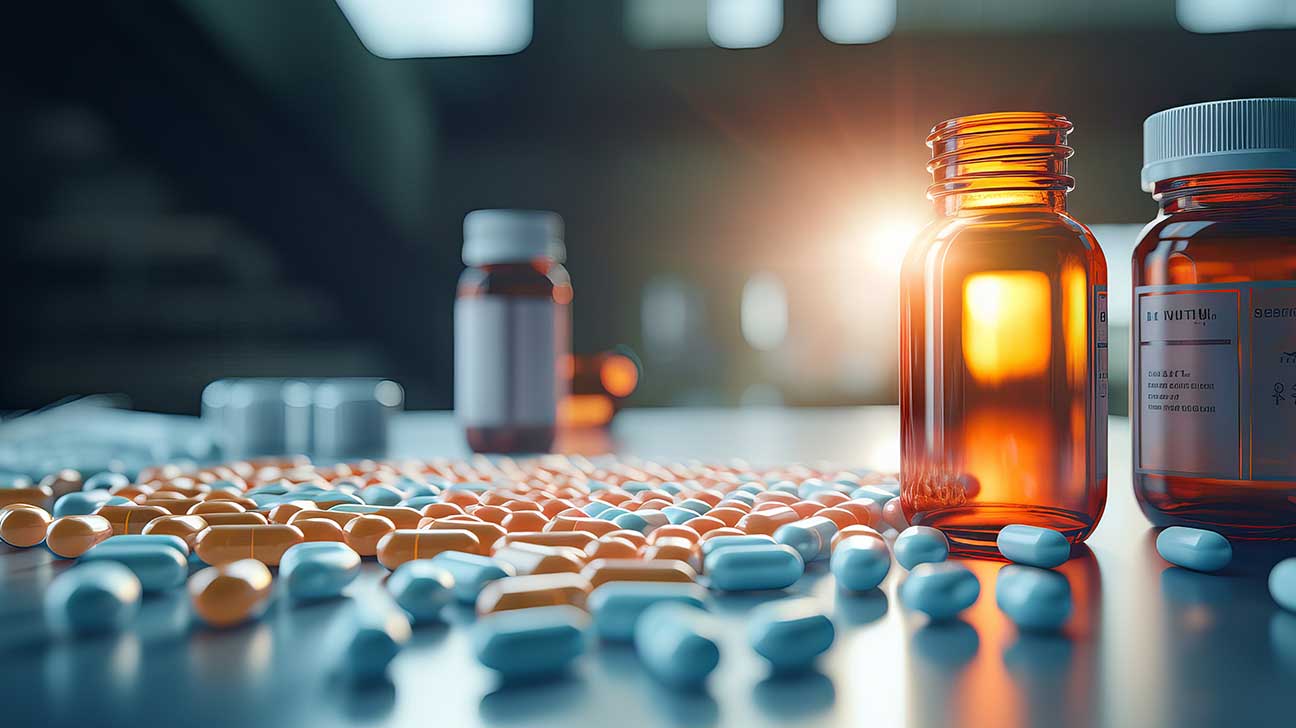
People facing moderate to severe alcohol use disorder will likely experience painful and potentially life-threatening withdrawal symptoms if they suddenly stop drinking.
There are a number of medications prescribed to people who are going through alcohol detoxification. These drugs may include barbiturates, anticonvulsants, benzodiazepines, and others.
What Causes Alcohol Withdrawal?
Alcohol is considered a depressant substance, which means it slows down brain function and changes how your neurotransmitters send signals back and forth.
Once the central nervous system adjusts to having alcohol in the system, the body works to keep the brain in a more alert state to keep the nerve receptors operating at a normal level.
When alcohol use is abruptly stopped, the brain stays in this highly alert state. This is what causes mild to severe alcohol withdrawal.
Alcohol Withdrawal Symptoms
Alcohol withdrawal symptoms can begin as soon as six hours after the last drink and last up to three days.
Symptoms of withdrawal may include:
- elevated heart rate
- disorientation
- intense alcohol cravings
- high blood pressure
- restlessness
- sleep difficulties
- anxiety
- irritability
- changes in appetite
- nausea and vomiting
Severe symptoms such as withdrawal seizures, hallucinations, and delirium tremens (DTs) are extremely dangerous and require medical attention immediately.
Medications Used During Alcohol Detoxification
Below is a list of some of the drugs used in the management of alcohol withdrawal.
Anticonvulsants
These types of drugs are administered to help prevent seizures. Anticonvulsants can also reduce alcohol cravings.
Commonly prescribed anticonvulsants include:
- carbamazepine
- gabapentin
- oxcarbazepine
- vigabatrin
Benzodiazepines
Benzodiazepines (“benzos”) are prescribed to help manage anxiety symptoms in people battling alcohol abuse. These medications can reduce the severity of withdrawal symptoms and lessen the occurrence of seizures.
Commonly used benzodiazepines include:
- Librium (chlordiazepoxide)
- Ativan (lorazepam)
- Valium (diazepam)
- oxazepam
Other Medications Used To Treat Alcohol Withdrawal
Depending on a person’s overall physical and mental health, history of alcohol consumption, and other factors, an array of additional drugs and vitamin supplements may be prescribed during or following detox.
These drugs may include:
- Antabuse (disulfiram) — a medication used in the treatment of alcohol addiction that produces sensitivity to alcohol and unpleasant side effects to drinking
- Campral (acamprosate) — a drug that reduces the desire to drink alcohol
- clonidine — a drug that lowers blood pressure by relaxing the arteries and increasing blood supply to the heart
- Vivitrol (naltrexone) — a medication used in both opioid and alcohol dependence to reduce the desire to use the substances
- barbiturates — depressant drugs used to help with sleep, anxiety relief, muscle spasms, and more
Treatment Programs For Alcohol Use Disorder
Upon completing alcohol detox, most people will need to transition into an inpatient treatment or outpatient program to continue receiving treatment.
Addiction treatment options may include:
- dual diagnosis treatment for co-occurring mental health disorders
- behavioral therapies
- counseling
- 12-step programs such as Alcoholics Anonymous (AA)
If you or a loved one needs medical advice regarding the treatment of alcohol withdrawal or alcohol withdrawal syndrome, contact your primary care provider.
Find A Substance Use Disorder Treatment Center Today
Reach out to DetoxRehabs.net today for more information about substance abuse treatment services.
Article Sources- National Institute of Health (NIH) — Alcohol Withdrawal Syndrome: Benzodiazepines and Beyond
https://www.ncbi.nlm.nih.gov/pmc/articles/PMC4606320/ - National Institute of Health (NIH) — Introduction to Alcohol Withdrawal
https://www.ncbi.nlm.nih.gov/pmc/articles/PMC6761824/ - United States Drug Enforcement Administration (DEA) — Barbiturates
https://www.dea.gov/factsheets/barbiturates


